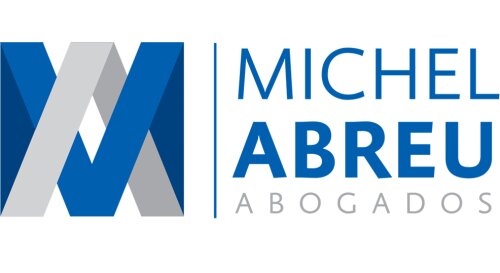Best Tax Lawyers in Punta Cana
Share your needs with us, get contacted by law firms.
Free. Takes 2 min.
List of the best lawyers in Punta Cana, Dominican Republic
About Tax Law in Punta Cana, Dominican Republic
Punta Cana, situated in the Dominican Republic, follows the national tax regulations. The Dominican Republic operates under a comprehensive tax system regulated by the Dirección General de Impuestos Internos (DGII), the country's tax authority. Taxation in Punta Cana, as in the rest of the country, includes income tax, value-added tax (VAT), real estate taxes, and more. The system is designed to support both the country's economic landscape and its businesses. Understanding the intricacies of this system is vital for residents, business owners, and foreign investors.
Why You May Need a Lawyer
There are several scenarios in which you might require the expertise of a tax lawyer in Punta Cana:
- Starting a Business: Navigating the local business tax regulations and understanding your tax obligations.
- Property Transactions: Ensuring compliance with real estate taxes and legal requirements.
- Resolving Disputes: Handling disputes with the tax authorities or dealing with assessments and audits.
- Tax Planning: Structuring your finances and investments to be tax-efficient within compliance guidelines.
- Foreign Investments: Understanding taxation on foreign income and double taxation treaties.
Local Laws Overview
The tax system in Punta Cana includes several key laws that are relevant to both individuals and businesses:
- Income Tax: Both residents and non-residents are taxed on Dominican-source income. Residents are taxed on global income.
- Value-Added Tax (VAT): Applied to the sale of goods and services, currently set at 18%.
- Property Taxes: An annual tax levied on properties that exceed a certain value threshold.
- Corporate Tax: Income of corporations is taxed at a rate of 27%.
- Double Taxation Agreements: The Dominican Republic has treaties with several countries to avoid double taxation on income.
Frequently Asked Questions
What is the current VAT rate in the Dominican Republic?
The current Value-Added Tax (VAT) rate in the Dominican Republic, including Punta Cana, is 18%.
Do I have to pay taxes on foreign income?
Residents are taxed on their global income, which includes foreign income. However, double taxation treaties may provide some relief.
How are real estate transactions taxed?
Real estate transactions are subject to a property transfer tax and annual property tax based on the property's assessed value.
What is the corporate tax rate in Punta Cana?
The corporate tax rate in Punta Cana, like the rest of the Dominican Republic, is 27%.
How can I verify if a tax advisor is certified?
The DGII provides a list of certified tax advisors. It's advisable to consult this list or inquire directly with the advisor.
Are there any tax incentives for foreign investors?
Yes, the Dominican Republic offers various tax incentives for foreign investors, particularly in tourism, real estate, and free-zone companies.
What records do I need to keep for tax purposes?
You should maintain records of all financial transactions, including invoices, receipts, and contracts, for at least five years.
Can I file my taxes online?
Yes, the DGII offers an online portal for filing taxes, which can be accessed through their website.
How often do tax regulations change?
Tax regulations can change annually or as required by governmental policy updates. It is essential to stay informed or consult a tax professional regularly.
What penalties exist for late tax payments?
Late payments can incur penalties and interest. The specifics depend on the type of tax and the amount overdue.
Additional Resources
For further guidance, consider reaching out to the following resources:
- Dirección General de Impuestos Internos (DGII): The official government tax authority.
- Chamber of Commerce and Production of Punta Cana: Offers resources and support for businesses, including tax-related information.
- Professional Tax Associations: Such as the Instituto de Contadores Públicos Autorizados de la República Dominicana (ICPARD), providing professional standards and certifications.
Next Steps
If you require legal assistance in tax matters, consider the following steps:
- Consult a Certified Tax Advisor: Verify their credentials and ensure they are recognized by the DGII.
- Schedule a Consultation: Many law firms offer initial consultations to evaluate your needs and discuss potential solutions.
- Gather Relevant Documentation: Prepare all necessary financial records and documents related to your tax issue before your meeting.
- Stay Informed: Keep up with local news and updates regarding any changes in tax laws that may affect your situation.
Lawzana helps you find the best lawyers and law firms in Punta Cana through a curated and pre-screened list of qualified legal professionals. Our platform offers rankings and detailed profiles of attorneys and law firms, allowing you to compare based on practice areas, including Tax, experience, and client feedback.
Each profile includes a description of the firm's areas of practice, client reviews, team members and partners, year of establishment, spoken languages, office locations, contact information, social media presence, and any published articles or resources. Most firms on our platform speak English and are experienced in both local and international legal matters.
Get a quote from top-rated law firms in Punta Cana, Dominican Republic — quickly, securely, and without unnecessary hassle.
Disclaimer:
The information provided on this page is for general informational purposes only and does not constitute legal advice. While we strive to ensure the accuracy and relevance of the content, legal information may change over time, and interpretations of the law can vary. You should always consult with a qualified legal professional for advice specific to your situation.
We disclaim all liability for actions taken or not taken based on the content of this page. If you believe any information is incorrect or outdated, please contact us, and we will review and update it where appropriate.










